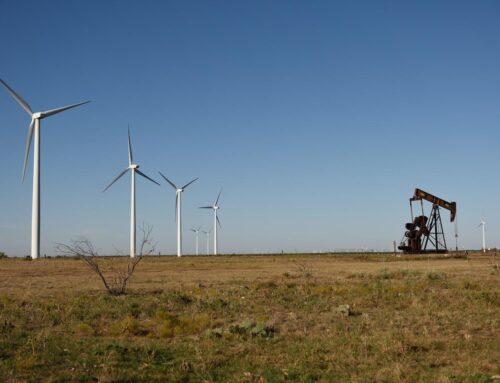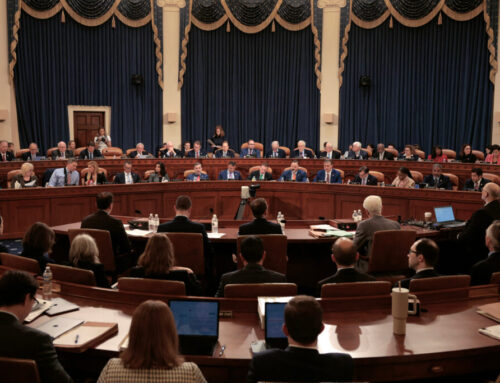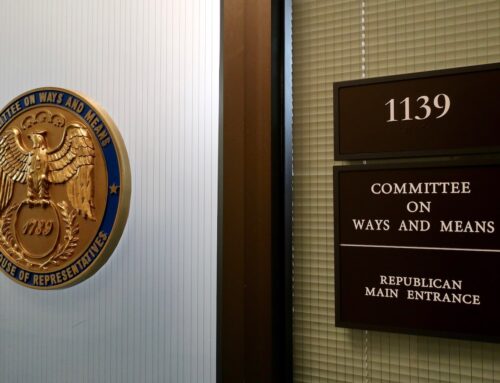In focus: EU initiatives for a just energy transition
May 14, 2025
Europe’s transition towards a clean and affordable energy system is ongoing. To succeed, it requires concrete policy action and significant investments. And it must be fair and equitable for everyone.
Europe’s diversity translates into different challenges when it comes to this transition. For regions that have traditionally depended on the extraction of coal, lignite, peat or oil shale for jobs and the economy, the critical transformation of our energy system presents unique challenges. Islands – of which 2 400 are inhabited in the EU – are conditioned by specific geographical circumstances and require tailored energy transition solutions. Meanwhile, across all EU countries there are groups suffering from energy poverty – accounting for 10.6% of Europe’s population in 2023.
Pursuing a just energy transition means taking steps to ensure that none of these people are left behind.
This article explores some of the European Commission’s key initiatives focusing on the social dimension of the energy transition.
Coal regions in transition
Coal use in the EU is in decline. Playing a significant role in the EU’s energy mix until recently, from 2018 to 2023 it saw a steep reduction of 42% for hard coal and 40% for brown coal.
2022 brought a symbolic mark: solar overtook hard coal as a source of electricity for the first time in the EU. Against 13 EU countries producing hard coal in 1990, by 2023 they were only 2: Poland (97% of total EU hard coal production) and Czechia (3%). But even here the change is noticeable: since 2012, the last year when coal production peaked in Poland, the country decreased it by 39%, and its southern neighbour by 88%.
As we transition to cleaner alternatives, it is critical that communities and regions that have traditionally depended on the coal industry as well as lignite, peat and oil shale (referred to as the coal+ regions) for their livelihoods, are equipped to achieve a successful transition.
For coal+ regions, diversifying to cleaner and future-proof industries can help mitigate the challenges such as job losses and demographic and social changes. Early engagement with local communities and other stakeholders is essential in this regard.
The Coal regions in transition Initiative, established by the European Commission, is actively helping to achieve just this. Closely linked to the Just Transition Platform, the initiative allows for a unique, bottom-up approach, enabling each region to identify and pursue the best opportunities and solutions in their unique context.
In practical terms, public administrations and other relevant stakeholders can benefit from a wide range of support measures and materials provided by the initiative, including technical assistance, peer-to-peer exchanges with other coal+ regions, knowledge products and events.
An important event in the initiative’s calendar each year is the Annual Political Dialogue. The 2025 edition takes place in Konin, Poland, on 24 and 25 June, under the Polish Presidency of the Council of the EU. It will be an opportunity for stakeholders from the EU’s coal+ regions to exchange on progress made so far, and have an open, future-oriented discussion on the competitiveness of coal+ regions in transition.
Clean energy for EU islands
The EU is home to 2 400 islands inhabited by 20 million people – together, they would make the 6th most populous EU country! While many of these islands have abundant access to renewable sources of energy like wind, solar and waves, they often lack the necessary infrastructure and incentives, and for historical reasons, depend on expensive fossil fuel imports for their energy.
To address islands’ unique energy transition challenges, the European Commission’s Clean energy for EU islands initiative offers a long-term framework to help them generate clean energy, thus contributing to lower energy costs, better energy security, improved air quality, and new job and business opportunities.
The Clean energy for EU islands initiative secretariat supports a large group of islands (147 since 2017) and, as part of its ‘30 for 2030’ programme, it supports 30 islands and island groups across 10 EU countries in becoming fully powered by renewables by 2030.
The programme offers technical and organisational help with energy planning, storage, transport, and more. A parallel ‘Follower islands programme’ allows other islands to learn from these pioneers through training, expert advice, and peer exchange, helping them advance their own clean energy transitions.
One of the main objectives is to demonstrate that islands can shift away from fossil fuels and run renewable energy-powered systems; and that this is much cheaper and cleaner than shipping fossil fuels to islands and burning it to produce energy.
Island communities, experts and stakeholders gather in the Azores on 14 and 15 May for the Clean energy for EU islands forum 2025 to jointly reflect on how island communities are dealing with the social, environmental, technical, and economic dimensions of the projects with a focus on 4 thematic pillars – renewable energy generation, sustainable transport, energy efficiency, and infrastructure and grids.
Energy Poverty Advisory Hub
Tackling the root causes of energy poverty, which effects over 10% of our population, is at the core of delivering a just energy transition for everyone across the EU.
Energy poverty affects citizens across every EU country. It occurs when a household must reduce its energy consumption to a degree that negatively impacts the inhabitants’ health and wellbeing, and is mainly driven by 3 underlying root causes
- a high proportion of household expenditure spent on energy
- low income
- low energy performance of buildings and appliances
The COVID-19 crisis, followed by the surge in energy prices and the Russian invasion of Ukraine have increased energy poverty in the EU, worsening an already difficult situation. In addition, climate change and more frequent heat waves mean that summer energy poverty, the inability to maintain comfortable indoor temperatures during the summer, is a growing problem in Europe.
The Energy Poverty Advisory Hub (EPAH) is the leading EU initiative on local action against energy poverty. It provides online guidance and knowledge products for local and regional authorities on diagnosing, measuring and planning actions to tackle energy poverty. Its resources include publications, an interactive database of projects and measures addressing energy poverty and a range of relevant courses. Local governments can also apply to calls for technical assistance to directly assist them in taking action on energy poverty.
In response to the increase in heat waves across Europe, the Cities Refresh campaign by the Covenant of Mayors highlights European cities and towns taking action in the face of extreme heat.
Related links
- Clean Energy Transition
- EU coal regions in transition
- Annual Political Dialogue – Initiative for coal regions in transition
- Clean energy for EU islands
- Clean energy for EU islands forum 2025
- Energy Poverty Advisory Hub (EPAH)
Search
RECENT PRESS RELEASES
Related Post






